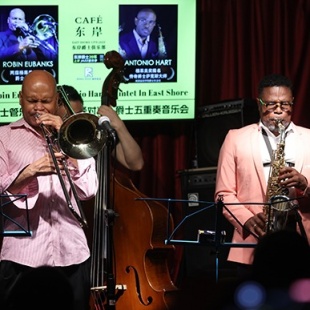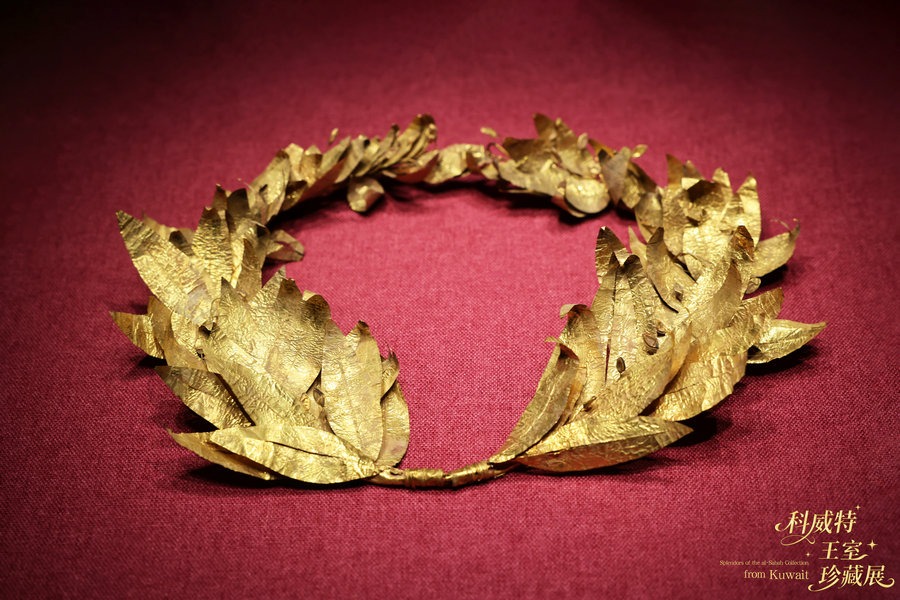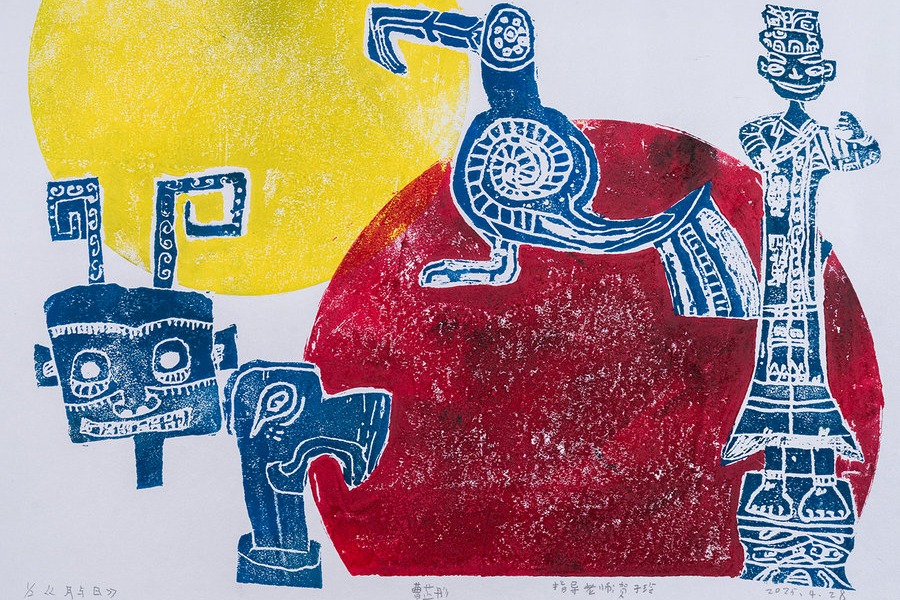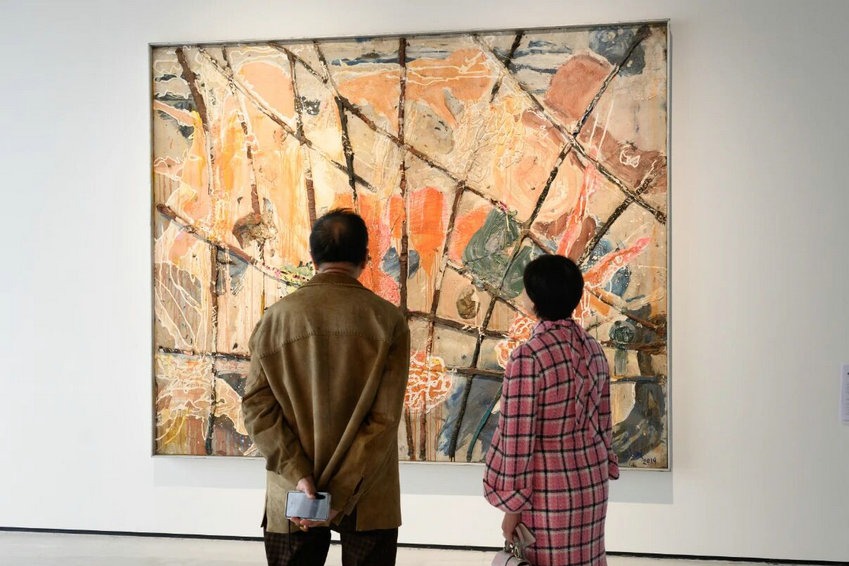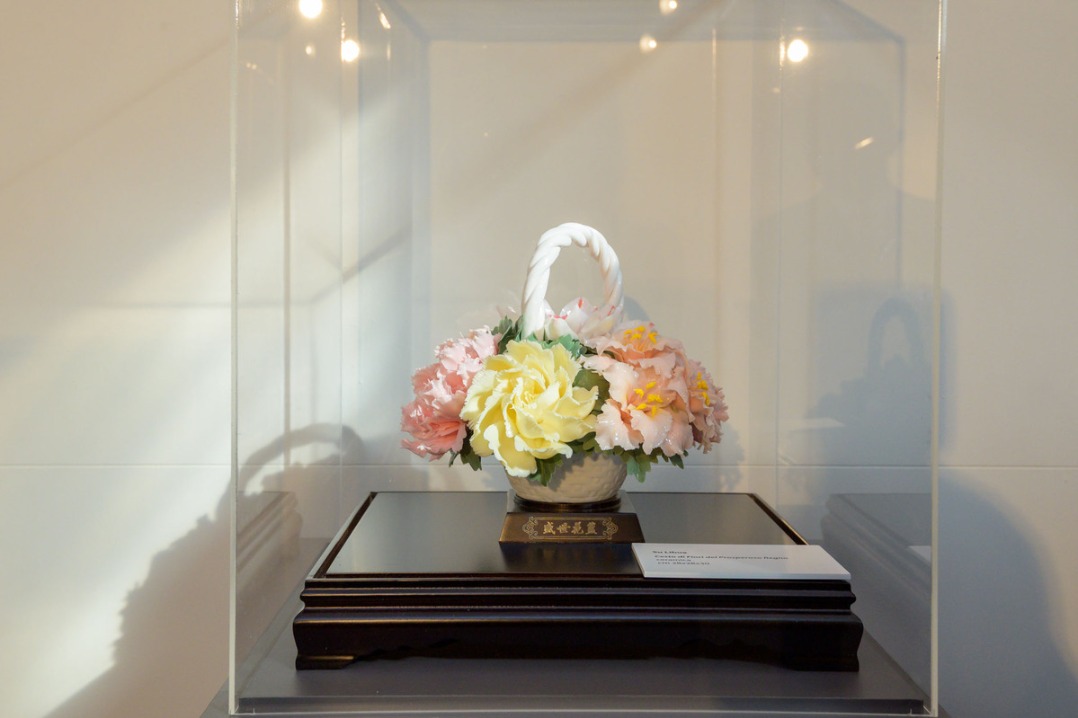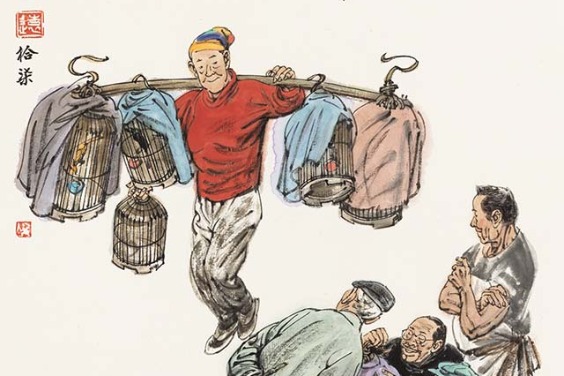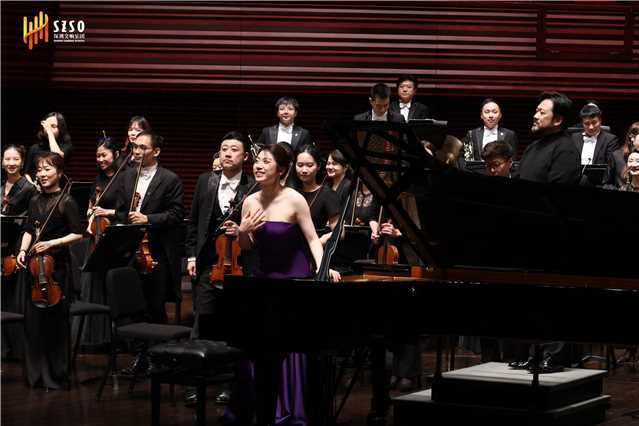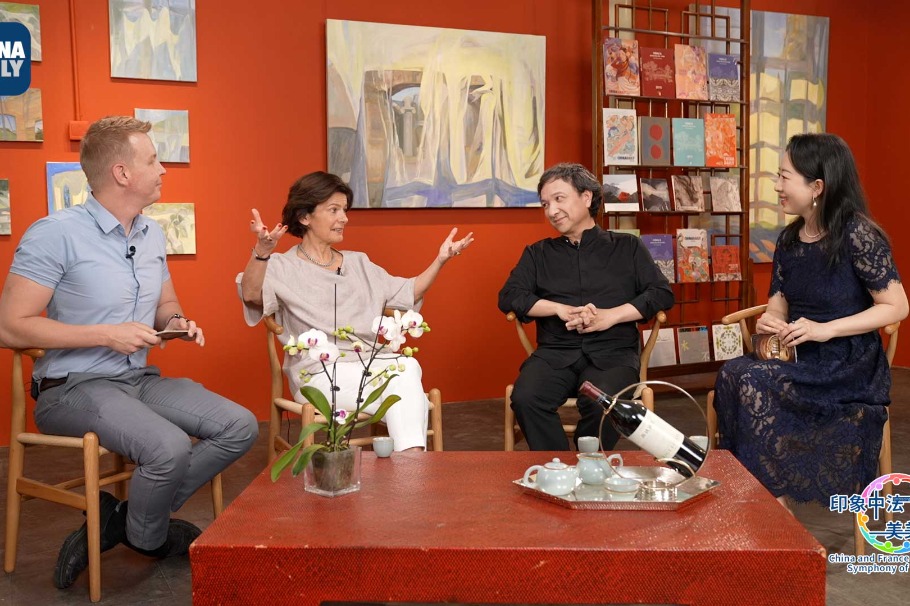Jazzing up the community
Musician creates venue where masters and students feel at home, supporting the genre through an evolution of sounds, Chen Nan reports.

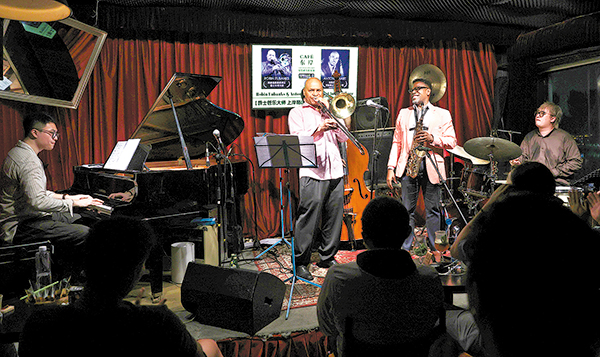
Hart has returned many times since, playing with local musicians, coaching young players, and building deep connections within the community. For him, the cafe is more than a performance space.
"It feels like home," he says. "Not because it's perfect, but because it's genuine."
He also notes that jazz isn't about perfection. "The audiences don't care about tritone substitutions or complex meters," he says. "They care about how it feels. If the music has energy, honesty, and space, then it's alive."
Li Yuxiang, a childhood friend of Liu Yuan and co-owner of East Shore, recalls: "When Liu Yuan came up with the idea of launching the jazz cafe, I, like many back then, knew nothing about jazz. But over the years, I gradually understood the music and shared his vision for the venue."
"He didn't just open a club," adds Li. "He opened a door (for people to enjoy jazz in Beijing)."
When the venue opened in 2006, Li was in his early 40s. He just turned 60.
"I didn't expect it would go this long, though we went through some hard times. We made friends with jazz musicians from around the world and when they visit Beijing, the cafe is their first-choice place to perform. We are proud," he says.
"That energy shaped generations. In the early days, people stumbled in from Houhai curious but confused about the music they heard. But slowly, people began to understand: This is jazz," he adds. Over time, the crowd became more focused.
According to Li, cities like Beijing, Shanghai, and Hangzhou in Zhejiang province became major centers for jazz performances. China's jazz community began benefiting from formal education, with more conservatories offering jazz programs. Many musicians studied abroad and brought back new ideas and influences, further enriching China's jazz culture.
"Today, jazz in China is a growing and dynamic genre," Li says.
Both Liu Yuan and Li grew up in the capital near the Houhai area, a popular scenic spot today. Summers in Houhai are full of light and movement. Along the winding alleys, or hutong, lined with gray brick walls and weathered wooden gates, courtyards sit quietly, shaded by old trees. The lake ripples with boats, cicadas pulse in the trees, and the stone lanes echo with footsteps and laughter from residents and tourists.
Liu Yuan died of cancer on Dec 22, 2024 at the age of 64, which saddened Li and the community he built, from the jazz musicians he worked with to those he trained and offered opportunities to perform at East Shore.
"His presence lingers, not just in old photographs or on plaques, but in the culture of the venue he built and the jazz scene that he always supported," says Li.
Drummer Xu Zhitong, 30, first visited the venue when he was 13 years old and was just beginning his music studies in Beijing. Back then, he came to the venue to watch performances by his teacher Beibei, a drummer with Cui's band, from which he developed a passion for jazz.
"I feel grateful for people like Liu Yuan. East Shore became a home for musicians. It's where I grew up with jazz, and it truly feels like home whenever I walk in."
Born in Harbin, Heilongjiang province, Xu was introduced to music by his father, who is a drummer of a local rock band and a music educator.
Xu began learning piano at age 4 and could play the jazz drums at 7. In 2011, he embarked on a journey to study in Germany. He obtained his bachelor's degree from the Conservatory of Wurzburg before furthering his studies at the University of Music and Performing Arts Munich to achieve his master's degree.
Xu notes that East Shore's evolution mirrored the country's jazz transformation.
The venue, which once had an aura of being a "sacred space" for seasoned musicians, also offers opportunities for young artists, particularly those returning from studying abroad. This inclusivity marks a pivotal shift in how jazz is cultivated in China.
"What's special about East Shore is that it continues to grow and evolve, just like jazz itself. More young musicians are coming in with their own works, and they have the chance to share their music with a wider audience," Xu says.
When CD Jazz Cafe opened in 1995, veteran bassist Huang Yong performed on its opening day. He was also there for East Shore's opening day in 2006.
"If the CD Jazz Cafe introduced people to jazz, becoming a place where celebrities, music lovers, and those who came purely out of curiosity, East Shore is a home for jazz lovers," says Huang.
In his 50s, Huang, who has traveled and performed at jazz music festivals in 25 countries and regions, performed with Liu Yuan for years. On Dec 31, 2024, Huang, after a few years of not performing at East Shore, returned to the venue to perform a tribute to Liu Yuan alongside young Chinese jazz musicians.
"It was New Year's Eve, and after midnight, we celebrated Liu Yuan's birthday, which fell on Jan 1. The return to East Shore felt like closing a circle to me," he says.
Huang has served as the general secretary of the China Musicians Association's Jazz Association since its establishment in 2013. Huang invited Liu Yuan to be the first president of the jazz association, which is a body tasked with uniting players and cultivating audiences.
Today, China's jazz pulse no longer beats solely in bigger cities like Beijing, Shanghai, and Guangzhou in Guangdong province, but also in cities like Chengdu in Sichuan province and Hangzhou.
"Each city has its own jazz culture, attracting new generations to discover it on its own terms," Huang says.
Five years ago, Huang was commissioned by the National Centre for the Performing Arts for the role of artistic director of the Taihu Jazz Festival held annually at the NCPA Taihu Stage Art Centre. This May, the festival brought over 200 jazz musicians from home and abroad, and put on more than 50 shows in a week. According to Huang, around 10,000 people attended the festival daily, and the livestreams attracted 20 million viewers per day.
Huang is particularly excited about the artists now coming of age.
"They understand theory and the idiom of jazz in a far more direct, effective way," he says. "Many studied abroad, absorbing the latest stylistic shifts in the world. Their way of communication is based on music when they perform together."
Dai Xiangcheng contributed to this story.


